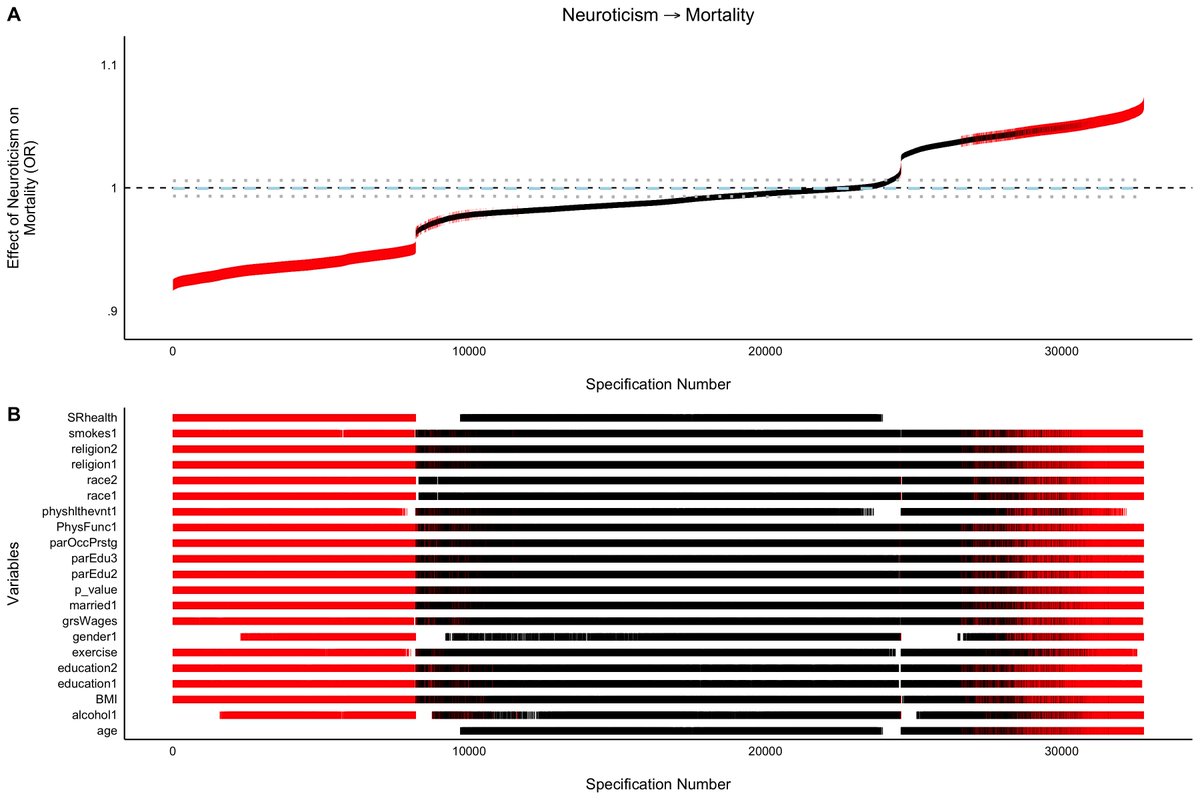
A slew of in press and under review (first-authored) preprints from mine and @jackson_josh_'s backlog: A tweet thread. (More from Josh to come.)
Now in press at the Journal of Personality and Social Psychology: part of my preregistered dissertation "A Mega-Analysis of #Personality #Prediction: Robustness and Boundary Conditions" (psyarxiv.com/7pg9b)
Materials on GitHub (github.com/emoriebeck/big…) and OSF (osf.io/usqzp/). Formatted results in Shiny (emoriebeck.shinyapps.io/Big-5-Predicti…) and a standalone page (emoriebeck.github.io/big-five-predi…).
The takeaway here is that personality predicts lots of outcomes reliably across studies, countries, decades, moderators, covariates, and methods (e.g., specification curve analysis and propensity score matching) but researchers need to pay more attention to covariate use. 



Second, now in press at @EJPBlog, @jackson_josh_ and my #COVID19 study: "Personality Coherence: A Quasi Experimental Longitudinal ESM Study" (psyarxiv.com/pvfg2/).
We found that personality consistency across the onset of COVID-19 lockdowns mimicked levels seen during "normal times." We couch this discussion in terms of thinking about Caspi & Moffit's "paradox of consistency," pitted against social cognitive and trait theory propositions
We found relatively few antecedents and consequences of consistency, with the exception of some goals and domains of satisfaction predicting consistency, leaving open the question of why changes in coherence occurs.
Finally, now under review, a #preregistered study using a permutation based kernel change point method for detecting correlational changes in multivariate time series: "Detecting #Idiographic #Personality Change" (psyarxiv.com/uts5a/)
Preregistration: osf.io/zbkta; Open data & materials: GitHub (github.com/emoriebeck/KCP) and OSF (osf.io/mfn8w/).
We found one or more structural changes in personality over the course of one year for a subset (~20%) of participants. ~75% of these changes were enduring, signaling that most people don't just "revert back." Detected changes had little correspondence to measured life events.
Common thread across all papers is a need to think more deeply about (1) #measurement, (2) matching ##methods and theory, and (3) my ongoing love of Gordon Allport, who is the reason I have never (and need never) have an original thought.
• • •
Missing some Tweet in this thread? You can try to
force a refresh



